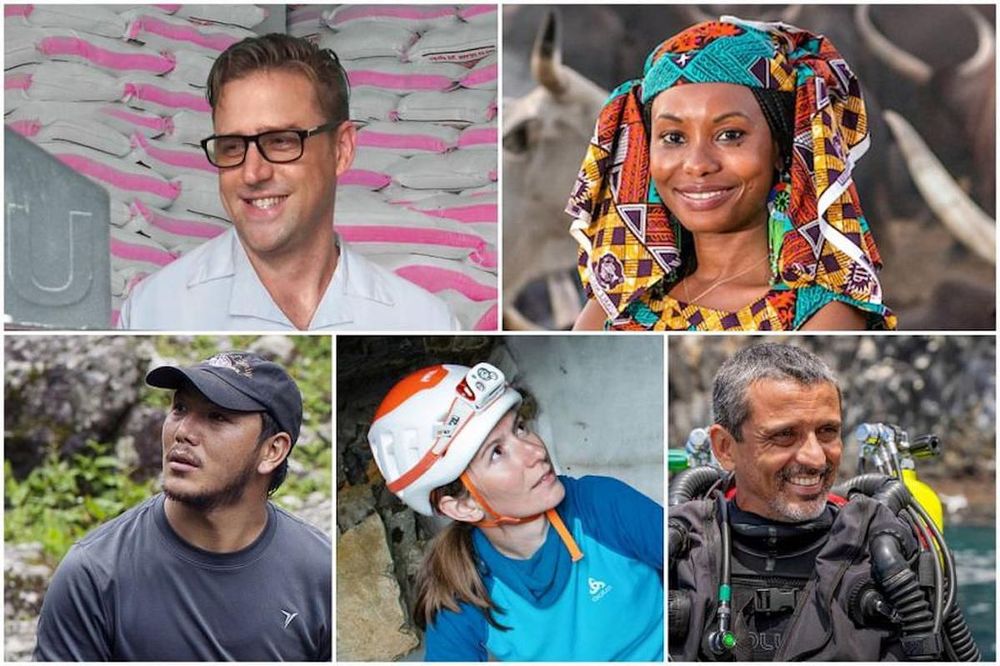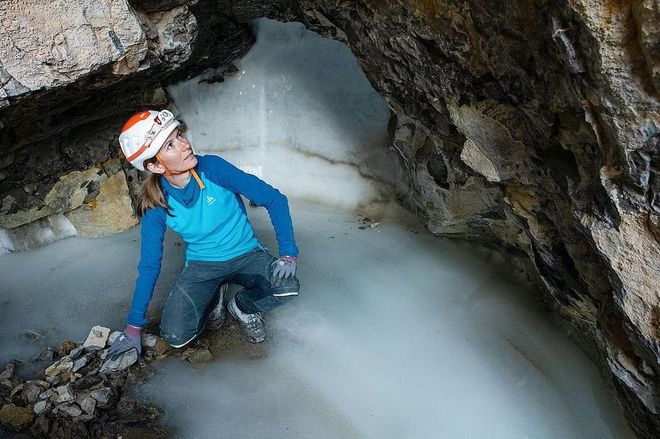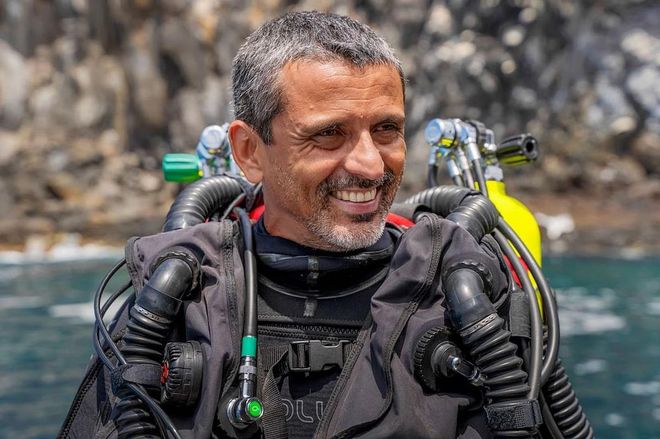Meet The 5 Winners Of The Rolex Awards For Enterprise
Like their predecessors, this year's winners, are tackling various pressing global issues.

Hailing from various parts of the globe, they are specialists in different fields but united by a common goal to make the world a better place.
For beavering to advance human knowledge and well-being through innovative and challenging projects, five individuals have been named this year's winners of the Rolex Awards For Enterprise.
They are social entrepreneur Felix Brooks-church (the United States), geographer and climate advocate Hindou Oumarou Ibrahim (Chad), conservationist Rinzin Phunjok Lama (Nepal), polar explorer Gina Moseley (Britain) and marine scientist Luiz Rocha (Brazil).
The Swiss luxury watchmaker first set up the biennial awards in 1976 to mark the 50th anniversary of the Rolex Oyster, the world's first waterproof wristwatch.
Over the decades, it has supported about 150 change-makers — with no or limited access to traditional funding — and their projects focusing on the environment, science and health, applied technology, cultural heritage and exploration.
Related article: These Are Rolex’s New Releases For 2021
Winners are chosen by a jury which changes for each series of the awards. Past judges include Edmund Hillary and Junko Tabei, the first man and first woman to ascend Mount Everest in 1953 and 1975 respectively; leading geneticist Steve Jones; and oceanographer and explorer Sylvia Earle.
Distinguished past winners include British volcanologist Andrew McGonigle (2008), who developed an early warning system for volcanic eruptions; and Australian biomedical engineer and scientist Mark Kendall (2012), who revolutionised vaccinations by inventing the needle-free Nanopatch.
Like their predecessors, this year's winners, unveiled last week, are tackling various pressing global issues.
Brooks-church is combating malnutrition in Tanzania; Ibrahim is addressing climate conflicts in the Sahel region in central Africa; Lama is trying to safeguard Trans-Himalayan ecosystems; Moseley is exploring climate change in the Arctic; and Rocha is discovering and protecting coral reefs and their biodiversity in the Indian Ocean.
Related article: What Has Rolex Got To Do With The Film Industry?
Felix Brooks-church
One of the world's most pressing problems is malnutrition, which affects two billion people globally and is linked to the preventable deaths of nearly 15,000 children daily.
The severity of the problem first hit Brooks-church a decade ago when he was working on educational projects in Cambodia. He was struck by the number of children there who were stunted and had learning difficulties because of, among other reasons, poor nutrition.
Adequate nutrition, especially in the first 1,000 days of a child's life, he discovered, could prevent more serious health issues from developing later.
It led him to set up Sanku, a social enterprise to combat hunger and malnutrition in Tanzania in 2013.
His solution? A device to fortify flour and other staple foods with nutrients. Called a "dosifier", the device — named by Time magazine as one of the best inventions of 2019 — adds vitamin B12, zinc, folic acid and iron to flour and is installed in thousands of small mills scattered throughout Tanzania.
Brooks-church's business model — based on the purchase of empty flour bags — is as ingenious as the device. It makes the addition of nutrients self-sustaining and costs the millers and consumers nothing.
Sanku purchases the bags in bulk, which allows it to sell to millers at market price. It then uses the margins to cover the cost of the nutrients.
Hindou Oumarou Ibrahim
Named by Time magazine in 2019 as one of 15 women championing action on climate change, Ibrahim has racked up several accolades in the past few years, including National Geographic Emerging Explorer (2017) and Pritzker Emerging Environmental Genius Award winner (2019).
Now, Rolex is saluting her for using indigenous people's knowledge to map resources and prevent conflict around climate in Chad, a landlocked country in central Africa.
The focal point of her work is Lake Chad, which provides water for over 30 million people living not just in Chad but also in the surrounding countries of Cameroon, Niger and Nigeria.
Climate change, Ibrahim says in an interview, has caused the lake to shrink rapidly, "from about 10,000km to about 1,200km now".
This has led to other problems including shorter rainy seasons that result in droughts or heavy rains which cause flooding. This impacts not just the environment, but also the lives of indigenous peoples, most of whom are dependent on agriculture.
This, in turn, causes social problems and leads to conflicts, like those between the Mbororo pastoralist people — of whom Ibrahim is a member — and settled farmers.
To manage the tensions, she brings different communities together to map and create 2D or 3D landscape models marking natural resources such as springs, rivers, fruit trees as well as sacred places.
The idea is not just to conserve but also share resources, including corridors for animals and access to fresh water. In so doing, the communities are also developing new methods of resilient agriculture and water conservation.
Her efforts have caught the attention of local governments who use her data to formulate policy.
Rinzin Phunjok Lama
Born and raised in the Humla district, one of Nepal's poorest and most isolated regions, Lama is a leading environmentalist whose mentor was also a Rolex Award Laureate in 1981 — wildlife biologist Rodney Jackson.
The latter, who spearheaded the first radio-collar study on snow leopards, spent almost 40 years protecting the threatened species in western Nepal.
Lama is following in his footsteps, protecting not just the snow leopard but also other at-risk species of Nepal's high-altitude wildlife — including the Himalayan black bear, Tibetan argali and musk deer.
Lama — who has a master's degree in International Nature Conservation from the University of Gottingen, Germany, and Lincoln University, New Zealand — is determined to educate communities in environmental conservation and train a new generation of leaders to help stop illegal hunting, logging and forest fires.
He is also exploring eco-tourism and other sustainable initiatives to develop livelihood opportunities for local residents.
The winner of the 2020 WWF Nepal Conservation Award said in an interview: "I want to show that, if given opportunities, local people can lead exceptionally and are capable of managing large-scale conservation projects and community engagement as real stewards of the land."
Gina Moseley
A British climate change researcher, polar explorer and caver, Moseley is now a professor and research group leader at the University of Innsbruck, Austria, specialising in caves as time capsules for past climates.
The National Geographic explorer has taken part in several caving expeditions in various parts of the world — including three, which she led, to remote caves in Greenland.
Rolex will be supporting her as she leads a six-member expedition on another trip to Greenland, to explore some of the planet's northernmost caves, in particular a hitherto unvisited giant one set high in a cliff above a lake.

Gina Moseley (Photo: Rolex)
Studying the chemical history of caves, Moseley says, is a good way to understand climate change.
On her expedition which involves arduous trekking on foot in 24-hour sunlight, she will be looking for the presence of calcite mineral deposits — also known as speleothems and formed from dripping water.
For water to enter the caves, the climate would have to have been warmer and wetter than it is today. If calcite is found on this expedition, Moseley's research could build a more global picture of the planet in a warmer period.
Greenland's ice sheet is melting at record rates, leading to rising sea levels. The region's rising temperatures will have a direct impact on rainfall, ice formations, ocean currents and weather systems, which in turn would affect the world's heavily populated areas.
Luiz Rocha
A marine biologist and a world expert in ichthyology (the study of fish), Rocha has spent more than 6,000 hours underwater and taken part in about 70 scientific expeditions.
He is making it his mission to not just study and explore, but also protect and make known the deep reefs and the diverse ecosystems deep in the Indian Ocean.
Coral reefs are crucial to marine life, with nearly 25 per cent dependent on reefs at some stage of the life cycle.

Luiz Rocha (Photo: Rolex)
Rocha's project will see him and his multinational team exploring the mesophotic reefs — coral ecosystems in low light — in the Indian Ocean. It is a risky undertaking since deep-reef descents require not just great technical skill, but also complicated equipment.
Among other objectives, the research will assess the suitability of mesophotic reefs to shelter at-risk species from shallower reefs which are under assault from global warming.
Working in partnership with the Maldives Ministry of Fisheries, Rocha also hopes to discover new species of fish and mine his research for vital data about conditions and temperature changes over extended periods.
For his contributions to ichthyology, Rocha won the inaugural Margaret M. Stewart Achievement Award in 2019.
This article first appeared in The Straits Times